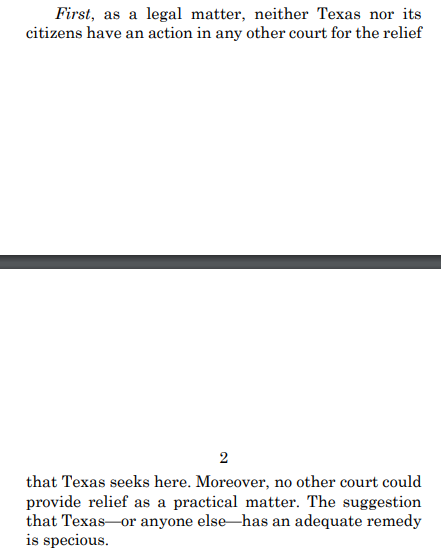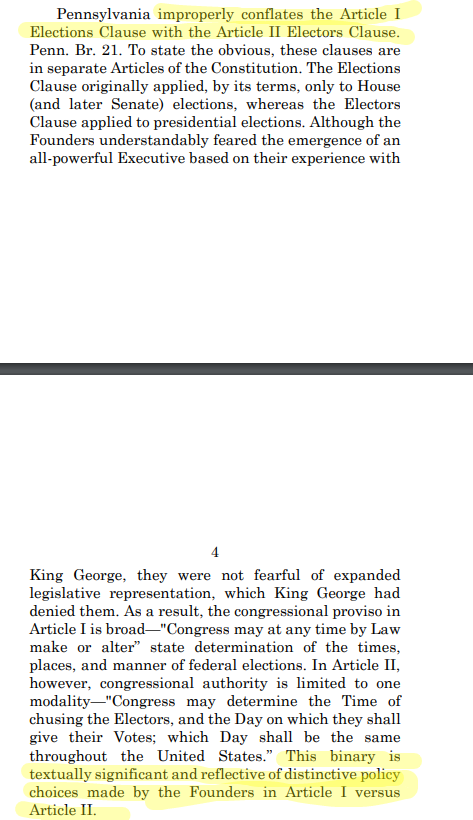In the cold light of morning, I'm still completely amazed by the legal belly flop that @ThomasMoreSoc filed in the DC District Court. It's the legal equivalent of watching the butt fumble, live
EVERYTHING you could possibly get wrong in a complaint, they managed
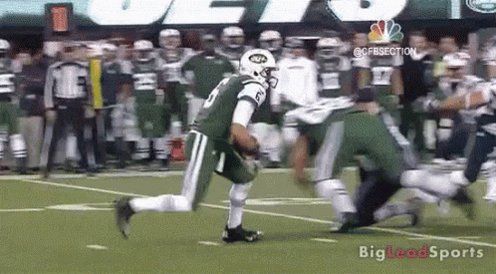
Are the plaintiffs state legislatures?
Again

More from Akiva Cohen
Folks, this is the single dumbest election lawsuit of the entire cycle, and I've read kraken filings front to back. https://t.co/PLHTf7HhbM
— Akiva Cohen (@AkivaMCohen) December 22, 2020
Here's the decision. Some highlights follow
Pretty sure I said this, using slightly different words!
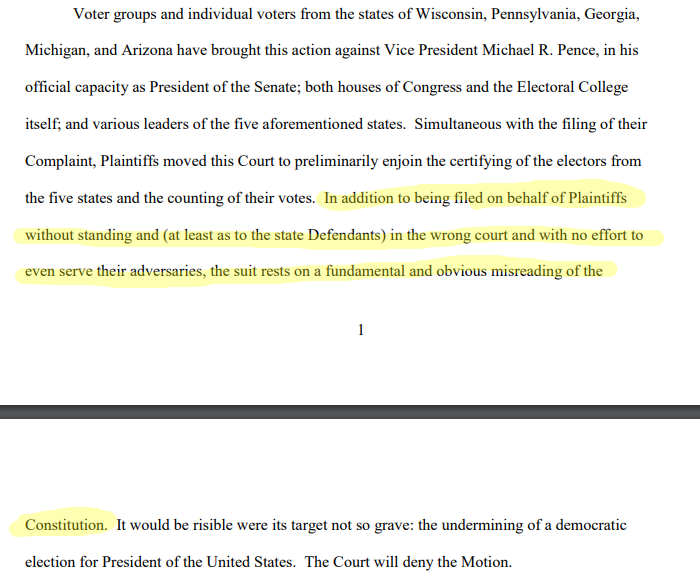
Hey, @questauthority, it sounds like Judge Boasberg was about as pleased about the long "none of this matters but we want to say it anyway" section as we expected him to be
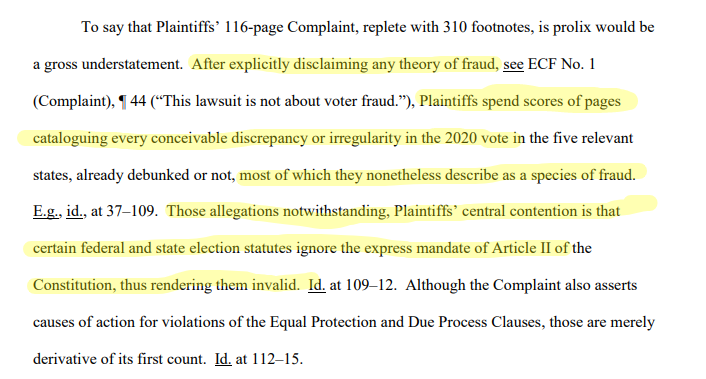
You CANNOT run into court claiming there's an emergency and you need an expedited schedule so you can be heard before 1/6 and then just not bother serving anyone for 12 days

More from Law
The #TexasCase has them terrified.
— Major Patriot (@MajorPatriot) December 10, 2020
They are losing it.#CNN pic.twitter.com/FtdWKIXBlB
VA curfew
#BREAKING: Virginia will implement a statewide curfew from midnight to 5 a.m. starting on Dec. 14. Here's what else is changing for Virginians.https://t.co/cH4jdCOZgt
— WUSA9 (@wusa9) December 10, 2020
Sen. Grassley - Biden family investigated, potential financial crimes WW including China
Warning
— Dan Scavino\U0001f1fa\U0001f1f8\U0001f985 (@DanScavino) December 11, 2020
March

You May Also Like
Here's the most useful #Factualist comparison pages #Thread 🧵

What is the difference between “pseudonym” and “stage name?”
Pseudonym means “a fictitious name (more literally, a false name), as those used by writers and movie stars,” while stage name is “the pseudonym of an entertainer.”
https://t.co/hT5XPkTepy #english #wiki #wikidiff
People also found this comparison helpful:
Alias #versus Stage Name: What’s the difference?
Alias means “another name; an assumed name,” while stage name means “the pseudonym of an entertainer.”
https://t.co/Kf7uVKekMd #Etymology #words
Another common #question:
What is the difference between “alias” and “pseudonym?”
As nouns alias means “another name; an assumed name,” while pseudonym means “a fictitious name (more literally, a false name), as those used by writers and movie
Here is a very basic #comparison: "Name versus Stage Name"
As #nouns, the difference is that name means “any nounal word or phrase which indicates a particular person, place, class, or thing,” but stage name means “the pseudonym of an
Curated the best tweets from the best traders who are exceptional at managing strangles.
• Positional Strangles
• Intraday Strangles
• Position Sizing
• How to do Adjustments
• Plenty of Examples
• When to avoid
• Exit Criteria
How to sell Strangles in weekly expiry as explained by boss himself. @Mitesh_Engr
• When to sell
• How to do Adjustments
• Exit
1. Let's start option selling learning.
— Mitesh Patel (@Mitesh_Engr) February 10, 2019
Strangle selling. ( I am doing mostly in weekly Bank Nifty)
When to sell? When VIX is below 15
Assume spot is at 27500
Sell 27100 PE & 27900 CE
say premium for both 50-50
If bank nifty will move in narrow range u will get profit from both.
Beautiful explanation on positional option selling by @Mitesh_Engr
Sir on how to sell low premium strangles yourself without paying anyone. This is a free mini course in
Few are selling 20-25 Rs positional option selling course.
— Mitesh Patel (@Mitesh_Engr) November 3, 2019
Nothing big deal in that.
For selling weekly option just identify last week low and high.
Now from that low and high keep 1-1.5% distance from strike.
And sell option on both side.
1/n
1st Live example of managing a strangle by Mitesh Sir. @Mitesh_Engr
• Sold Strangles 20% cap used
• Added 20% cap more when in profit
• Booked profitable leg and rolled up
• Kept rolling up profitable leg
• Booked loss in calls
• Sold only
Sold 29200 put and 30500 call
— Mitesh Patel (@Mitesh_Engr) April 12, 2019
Used 20% capital@44 each
2nd example by @Mitesh_Engr Sir on converting a directional trade into strangles. Option Sellers can use this for consistent profit.
• Identified a reversal and sold puts
• Puts decayed a lot
• When achieved 2% profit through puts then sold
Already giving more than 2% return in a week. Now I will prefer to sell 32500 call at 74 to make it strangle in equal ratio.
— Mitesh Patel (@Mitesh_Engr) February 7, 2020
To all. This is free learning for you. How to play option to make consistent return.
Stay tuned and learn it here free of cost. https://t.co/7J7LC86oW0



